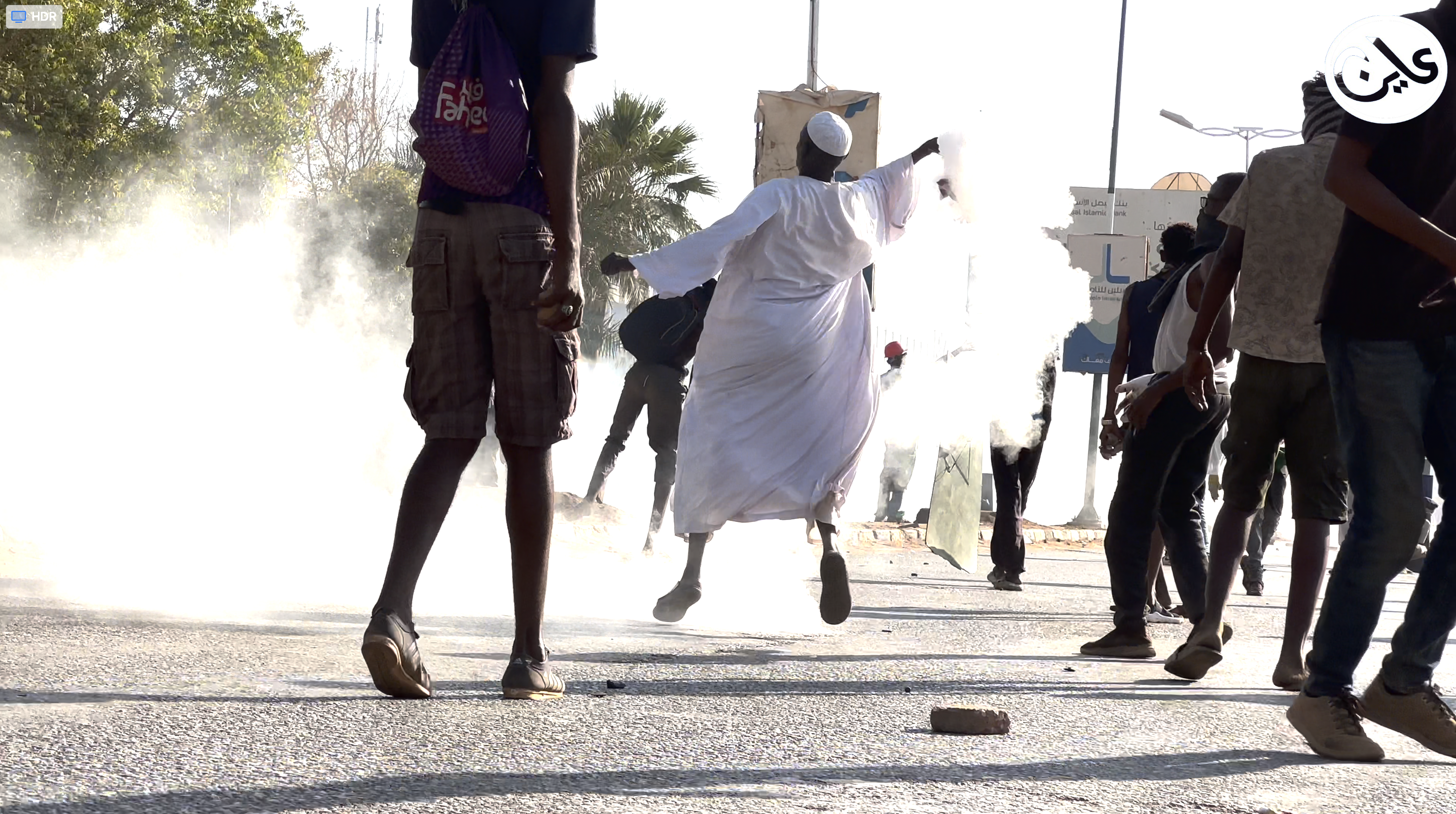The Political Framework Agreement – a “Trojan Horse for the coup leaders”
24 December 2022
Last Monday marked the fourth anniversary of Sudan’s revolution whereby the grassroots resistance committees came out to the streets in protest of the ongoing coup and to reject the Political Framework Agreement signed by some civilian political parties and the military earlier this month.
The agreement, ostensibly designed to pave the way forward for a political transfer to a civilian government, has been viewed by the protest movement and other parties with deep distrust as an overly broad document that will provide Sudan’s military leaders impunity and a back channel to remain in power. Without the support of Sudan’s public, the chances of success for this agreement remain slim, analysts say, despite considerable internal and external pressure.
“The resistance committees view the fourth anniversary of the launch of the glorious Sudanese revolution as a day to renew the covenant with the revolutionaries who lost their lives by the bloody and violent state apparatus that has been used against peaceful protesters,” the Khartoum Resistance Committee Spokesperson Ahmed Esmat told Ayin. Esmat also stressed that the anniversary of 19 December is a time the resistance committees must end the “blood agreement”, referring to the framework agreement signed between some civil and military leaders.
“In general, the agreement guarantees amnesty for the assassins,” says resistance committee leader, Hamad Abdelrahman, who organises protests in the Sharg el-Neel area in the capital, Khartoum. “It is like a Trojan horse for the coup leaders.”
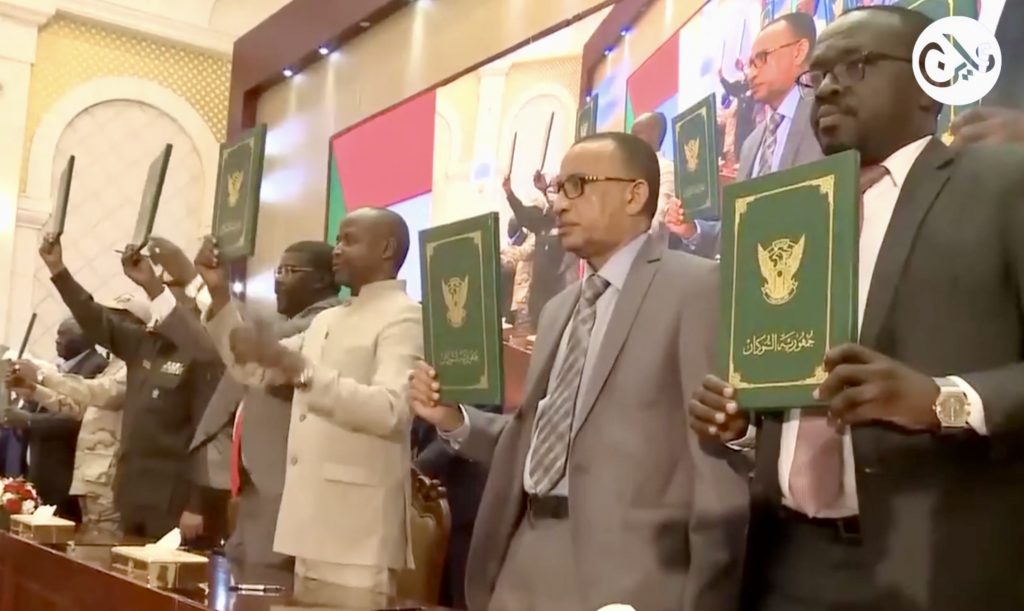
The Political Framework Agreement
On 5 December, the civilian-led Forces for Freedom and Change and Military Council signed a political framework agreement under the auspices of the international community that the signatories claim will lead to the formation of a fully civilian government. The agreement marks the first stage of a two-stage political process based on the draft constitution prepared by the Sudanese Bar Association’s steering committee.
Five key sensitive areas, however, are yet to be addressed: transitional justice, amending the peace agreement among former rebel groups, security, and military reform, dismantling the structure of the former regime, and the crisis in eastern Sudan. These areas of contention will be reviewed in the next stage of the agreement which is meant to be completed, rather ambitiously, by the end of the year.
“The second phase started from the next day of launching the first framework agreement,” says Florence Marchal, the Spokesperson of the United Nations Integrated Transition Assistance Mission in Sudan (UNITAMS) which is assisting in mediating the agreement. “Signing the Framework Political Agreement was an important breakthrough to enable different stakeholders to interact and discuss openly and in good faith the issues of the final agreement which are critical contentious issues.”
At face value, the framework agreement addresses many issues that civilian actors, including resistance committee members, consider critical for any political transition to civilian rule. The agreement calls for security and military reform that leads to one professional army, for instance, and prohibits the formation of militias. Security services, who amassed huge fortunes in illicit commercial deals that favoured political loyalty during the Bashir era, would be prohibited from practicing any commercial investment activity.
The agreement has received support from some prominent political parties including the Umma Party, the Sudanese Congress Party, and the Popular Congress. But other parties –including the Communist Party and Socialist Baath Party — have rejected it. The largest opponents to the agreement, however, remain the public, organised resistance committees whose long-term distrust of the military and short-term suspicions of the civilian parties ensures their rejection of it.
Ever since Lt-Gen Abdelfattah al-Burhan launched the 25 October 2021 coup, blocking a transition to civilian leadership, the resistance committees have adopted the policy of the “three No’s,” in relation to the coup leaders – “No partnership, no negotiation, and no legitimacy”. This zero-compromise approach remains steadfast today.
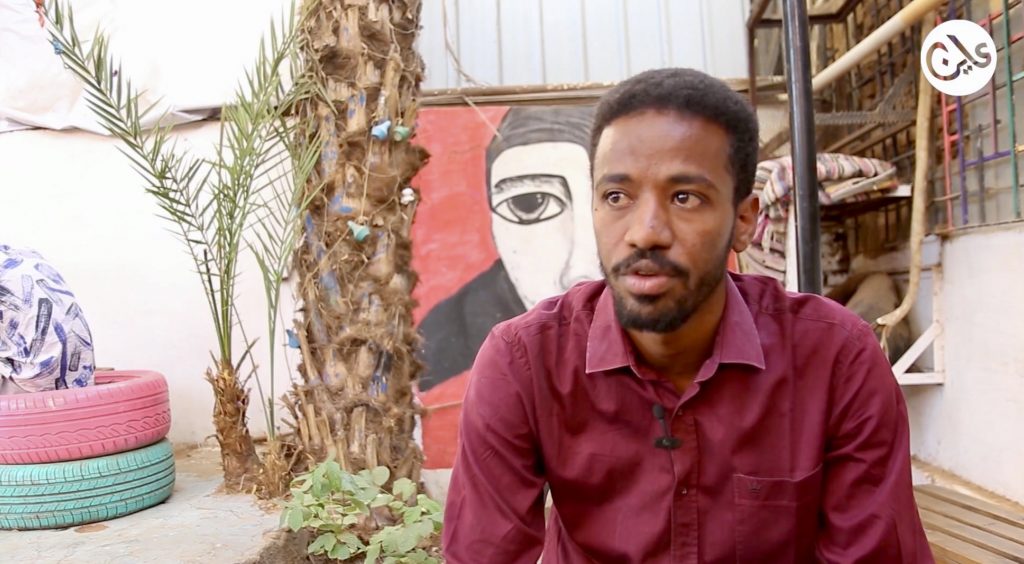
Dangerous loopholes and general distrust
Those who oppose the agreement simply do not trust the military to honour their pledge to step down from power and believe the broadly worded framework agreement will provide loopholes to allow the putschists to surreptitiously remain at the helm.
On paper, the agreement provides for the military to withdraw from politics and limits its formal role to a defense council overseen by a prime minister. But it also allows for the military to control any reform of its own structure and for the government to seek its intervention in non-military matters in undefined cases.
According to a statement from the Communist Party, the military will remain at the centre of power with their control over the security services, economy, and media. “This also includes its [the military’s] open powers, as the document remains vague with no tasks specified,” the statement says.
Wagdi Saleh, a member of the civilian Forces for Freedom and Change (FFC), who was recently detained by the military, told Ayin the putschists simply cannot be trusted to step down from power. “The Commander in Chief of the Armed Forces, Lt. Gen. Abdel Fatah al-Burhan, carried out three military coups in three years since 2019,” Saleh said. “What he is promoting about the return of the armed forces to the barracks and this handover of power is just an illusion.” Feeling betrayed by the military leadership in the past, the resistance committees harbour no faith in any agreement attained with them. “We have tried negotiation and the division of power with the military – it did not lead to any positive results – this was demonstrated by the coup on the 25th of October when the military turned against the civilian partners,” Esmat said.
The military and security services have made no effort to garner any confidence and support from the streets, protestors told Ayin. Worse still, the security forces continue to target them with deadly force in each pro-democracy demonstration. During the 19 December protest, the Central Committee of Doctors of Sudan counted 155 injuries linked to the security forces’ use of live bullets and firing tear gas canisters directly at people’s heads. The injury rate is so high, it averages 19 injuries per day for a year.
Security forces have killed over 120 protestors since civilians took to the streets -–equating to one protestor being killed every third day per annum. “They shoot at us, rob us, kill our friends –how can anyone be expected to trust them [the military], let alone negotiate another settlement?” says Sara Ahmed* an active protestor and Khartoum resident.
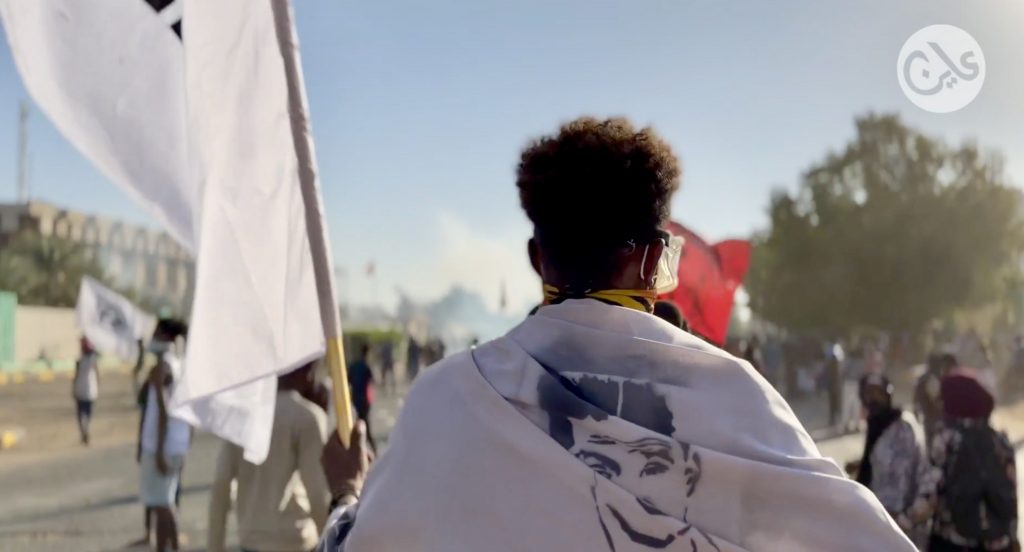
Transitional justice
Given these grim statistics, the issue of attaining justice for the victims of past and present violence perpetrated by the security forces remains pivotal within the resistance committees’ demands and a sticking point in any negotiations. According to sources from civilian parties to the deal, there is an agreement to keep the country’s coup leaders –army chief Abdel Fattah al-Burhan and his deputy Mohamed Hamdan Dagalo—within their military roles and grant them temporary immunity. If true, this is a stipulation the resistance committees feel they cannot morally accept.
“Over the past four years we have lost friends who were killed while working for change,” the Khartoum Resistance Committee Spokesperson said. “We have a covenant with them that we cannot back down from –we have to complete what those who were killed started while seeking justice and freedom for the people.” FFC leader Jaafar Hassan, however, told Ayin the issue of transitional justice must be achieved in a wide, comprehensive participatory approach that would include the families of protestors who have died in the anti-coup movement. “The issue of transitional justice will be an essential part of the elaborate, in-depth discussion to take place in phase two of the final agreement,” Marchal told Ayin. “For this, we believe it is important for the parties to try and find inspiration of what South Africa or Rwanda have managed to do in their contexts when trying to tackle these complicated issues.”
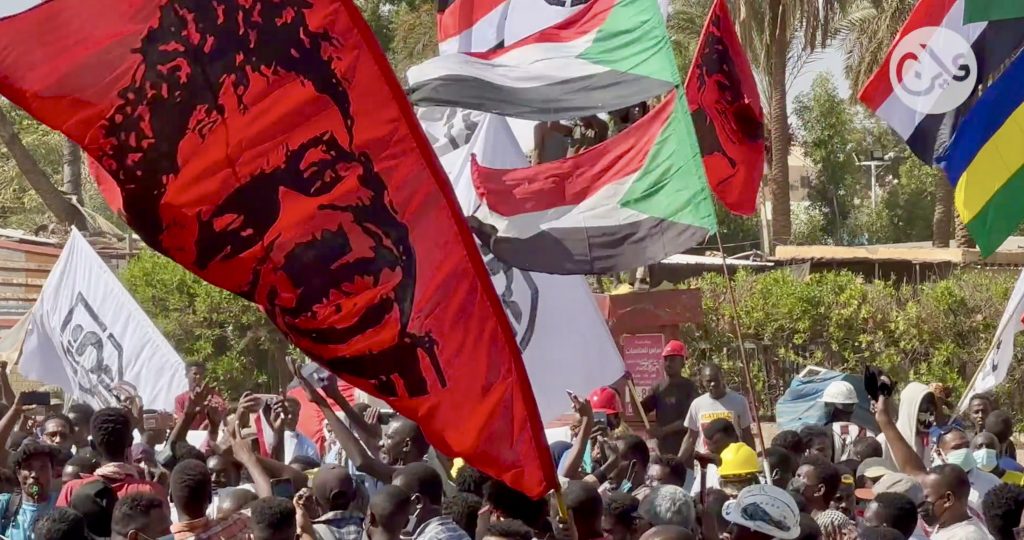
A growing divide between the FFC and Resistance Committees
Like the military, the resistance committees are also skeptical of the current civilian parties that signed the agreement. The protest movement has developed a gradual distrust towards certain parties within the Forces for Freedom and Change (FFC) movement, Esmat said. “The more the Force for Freedom and Change penetrated into power, the wider the gap between them and the resistance committees emerged. This made us seek more independence from them as the FFC tries to obstruct the efforts of the resistance committees and block our independence.”
Some analysts and resistance committee members believe the political elite within the FFC are out of touch with the sentiments of the streets and assume they can co-opt the resistance committee’s support for political gain, instead of viewing them as political partners. One example of this, the committee spokesperson says, is the directive issued in November 2019 by the civilian government during the transitional period that attempted to organise the work of the resistance committees. The directive, largely ignored by the committees, attempted to define the scope of the resistance committees’ powers and responsibilities under the FFC leadership. “The FFC even sought to control the protest processions and slogans of the resistance committees,” Esmat said, “they have always been keen to neutralise our independence.”
The ruling political class has vehemently opposed any political pacts developed by the resistance committees, Esmat says, and explains why the political charters developed by the committees have been largely ignored by all political actors. “This class considers the public’s opinion a threat to their own political and social interests,” he added, “the military and Forces for Freedom and Change differ in positions, but they agree on the need for the Sudanese revolution not to continue.” According to resistance committee members, they do not share the same political system and approach assumed by the Forces for Freedom and Change. “We do not want a top-down approach but a grassroots system,” Abdelrahman said, “where citizens elect their local council, state parliament, and the national parliament.”
No inclusivity – a fait accompli
According to Amgad Fareid, a political analyst and former advisor to the premier, the framework agreement lacks inclusivity and is derived from political actors who assert their will over a multitude of voices with no consultation. “The Forces of Freedom and Change imposed their understanding of the coup leaders as a fait accompli in their framework agreement. It is worth noting that naming the 5 December agreement as a framework agreement is a misnomer. The agreement does not contain any framework or plan for an anticipated political process, but rather contains final clauses, agreements, and commitments on issues.”
The rebel groups who signed the Juba Peace Agreement in 2020 and later support Burhan’s military coup, have also rejected the agreement – claiming a lack of inclusivity. Sovereign Council member Malik Agar has described the agreements’ signatories as a minority representing the elite of Khartoum with a complete absence of representation from the margins. “The number who have officially signed the agreement does not exceed 13 parties,” Agar said, “the vast majority [of parties] remain outside the framework agreement.”
UNITAMS Spokesperson Marchal disagrees. “From what we see, there is a majority of Sudanese behind this agreement. We can also see that some resistance committees and civil society organisations accepted this agreement as a first step.” A week after the agreement was signed, the FFC said they received 60 requests to sign the framework agreement. “One key point that almost all parties agree on is that the current situation is not sustainable anymore, and change can only be reached when different parties continue engaging in extensive dialogue to reach a political compromise,” Marchal added.
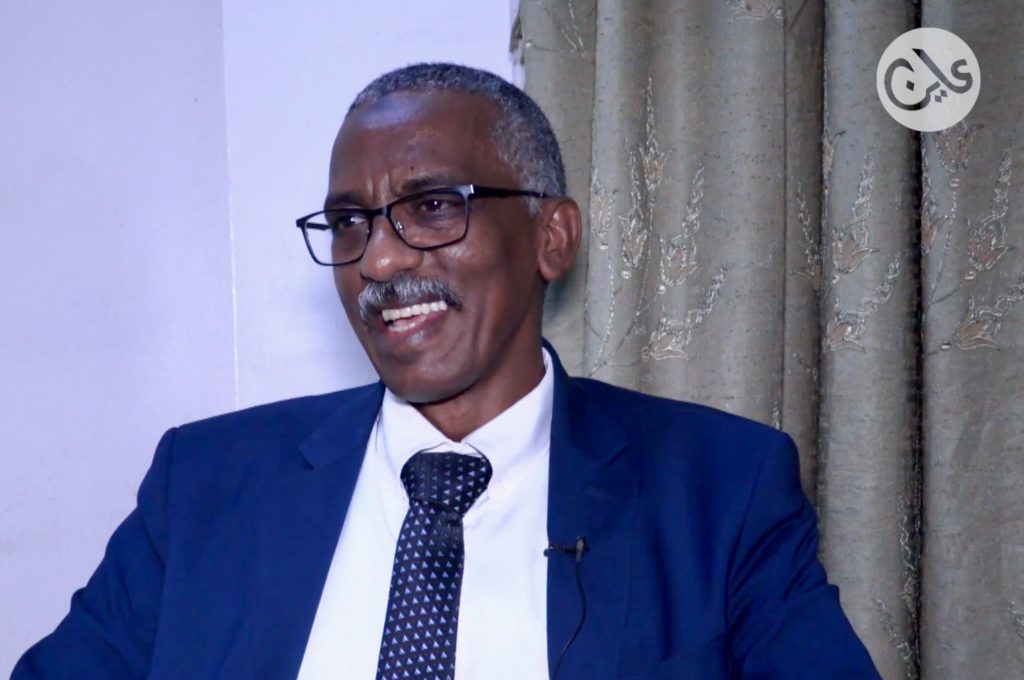
Civilian rule or a façade?
Even if the agreement is ratified, analysts say, there is no guarantee it will lead to genuine civilian rule. With the security service in control of the economy and cadres of the former regime fully infiltrated within the civil service, many suspect a political transfer to civilian rule will be disingenuous –where the real political strengths lie with the military and their Islamic allies.
“In our estimation, according to our political and social reality and the balance of power in state institutions, whoever controls the security services and uses it to control 85 percent of the resources –this is the centre of power,” the Arab Socialist Baath Party Spokesperson, Adil Khalafalla told Ayin.
In August 2021 prior to the coup, ousted Prime Minister Abdallah Hamdok announced in a speech that the military controlled 80% of the economy and public funds, leaving only 20% for his civilian government to manage. Sudan’s largest bank, Omdurman National Bank, is at least 86.9% owned by the army, according to C4ADS, a non-profit organisation that investigates illicit networks. Omdurman National Bank (ONB) is Sudan’s largest financial institution, valued at more than all other public financial institutions in Sudan combined at the end of 2019. The bank openly supports the military, donating 20,000,000 Sudanese pounds (SDG) (US$440,000) to it as recently as March 3, 2021.
After the coup, the putschists were quick to reinstate members of the former regime, the National Congress Party (NCP), back into the civil service for political support and to prevent any civil disobedience that could paralyse the economy. The efforts of the former Dismantling Committee, set up during the transitional period to remove NCP-affiliated organisations and recover illicit assets, were completely reversed upon the eve of the military coup. According to the former head of the Dismantling Committee, Wagdi Saleh, the NCP is now fully reinstated within Sudan’s civil service.
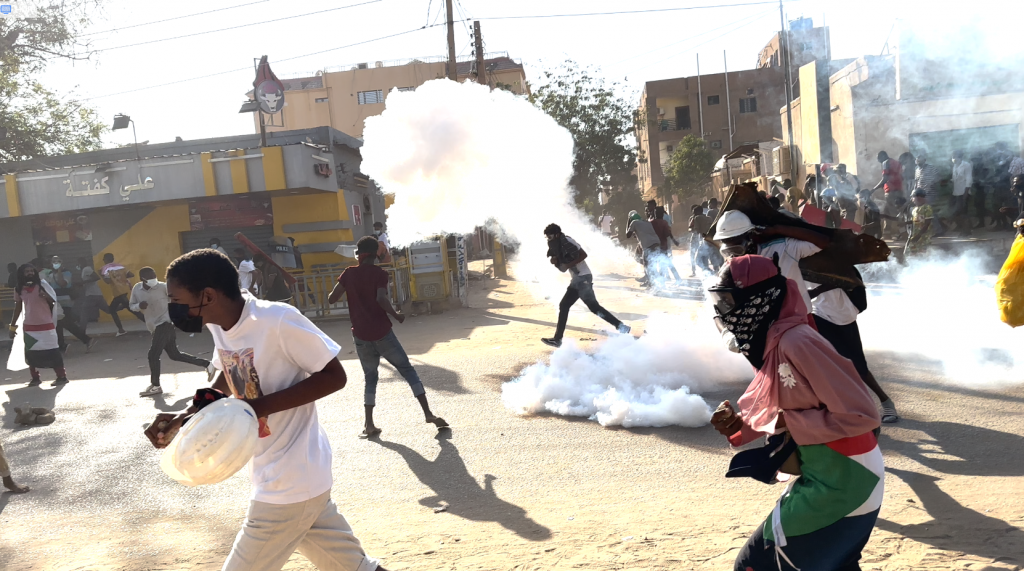
An economically impossible status quo
While suspicions over the political framework agreement continue, Sudanese economists warn that the country simply cannot afford to remain in the current political impasse. After the coup, Sudan lost roughly $4.6 billion in foreign aid. According to the former Deputy Governor of the Central Bank of Sudan, Farouck Kamabreesi, Sudan’s budget deficit is expected to be mainly financed by domestic borrowing from the Central Bank, in temporary advances, while the military remains in power. To compensate for the loss of revenues, the coup government has raised the prices of many goods –the cost of bread has increased tenfold, while other staples have seen a 200-300 percent price hike. By June this year, the UN predicted a third of Sudan’s population will face severe food insecurity.
Despite these huge challenges for the public, the resistance committees are steadfast in their refusal to allow any political compromise with the military and remain determined to continue their protests against the coup. Since the October 2021 coup, Sudanese have protested in over 54 towns across the country, constituting one of the world’s longest and largest protest movements. Throughout this period, the resistance committees have organised over 100 days of national protests to demand civilian rule –that is a major protest every five days for a year. Many resistance committee members have resigned themselves to the idea that they will not see real political change in their lifetime, but will continue to protest for future generations, Esmat told Ayin. “The country must go in the direction of real radical change, even if we spend a lifetime to achieve this.”
* The individual’s name has been changed for security purposes


